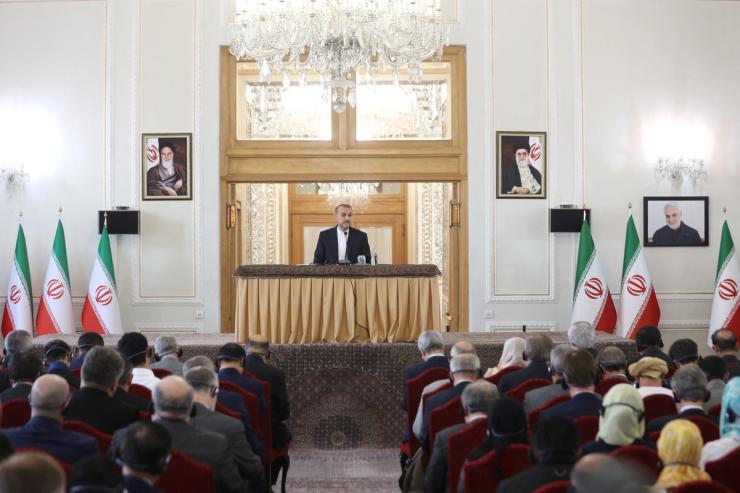The News
U.S. President Joe Biden announced on Thursday a new round of sanctions against Iran, specifically targeting the country’s military drone program, after Tehran’s weekend attack on Israel. The U.K. also imposed sanctions on Iran, a day after a similar move by the European Union.
In a statement released by the White House, Biden emphasized the collective effort of the G7 alliance in restricting Iran’s military program as well as the United States’ commitment to Israel’s security. Upcoming sanctions will block exports by Iran’s steel industry and focus on Iran’s ability to export oil.
“It’s very important to do everything to isolate Iran,” European Council President Charles Michel said after a summit in Brussels.
Tehran said its aerial attack on Israel was in response to a suspected Israeli air strike on its embassy compounds in Damascus on April 1, when 13 people were killed. Israel has vowed to retaliate, while the U.S. and other members of the G7 have urged it to show restraint in order to prevent an “uncontrollable” escalation of war in the Middle East. Meanwhile, Iran said Thursday that it may revise its nuclear doctrine if Israel threatens an attack on Iran’s nuclear facilities.
SIGNALS
The strikes on the Iranian consulate are a ‘game changer’
The suspected Israeli strike on Iran’s consulate in Damascus was “a misjudgment” and a “gamechanger,” wrote The Guardian’s senior international affairs correspondents. With the strike and Iran’s counter-attack, “A war that has long been fought through proxies, assassinations and strikes away from Israeli soil — often in third countries — has spilled into the open.” According to a poll by the Hebrew University of Jerusalem and published by the Times of Israel, 74% of Israelis oppose a retaliatory counter-strike on Iran if such action would harm Israel’s security alliances with its allies. While Western nations including the U.S. have urged Israel to “take a breath before responding,” Israel’s Prime Minister Benjamin Netanyahu has emphasized that Israel will “make [its] own decisions… [and] do everything necessary to defend itself.”
Critics say sanctions against Iran are ineffective
In a newly published book about how Western sanctions have impacted Iran, anthropologist Narges Bajoghli and her three co-authors wrote that the sanctions have strengthened the government and military while impoverishing the Iranian population, reducing their ability to be a force of change. Last year the Atlantic Council reported that Tehran “has set up an illicit global network of shell companies, banks, and exchange houses” to evade sanctions. This underground financial network, Politico pointed out, has enabled it to keep trading with countries like Russia and China in areas such as oil and metals.



